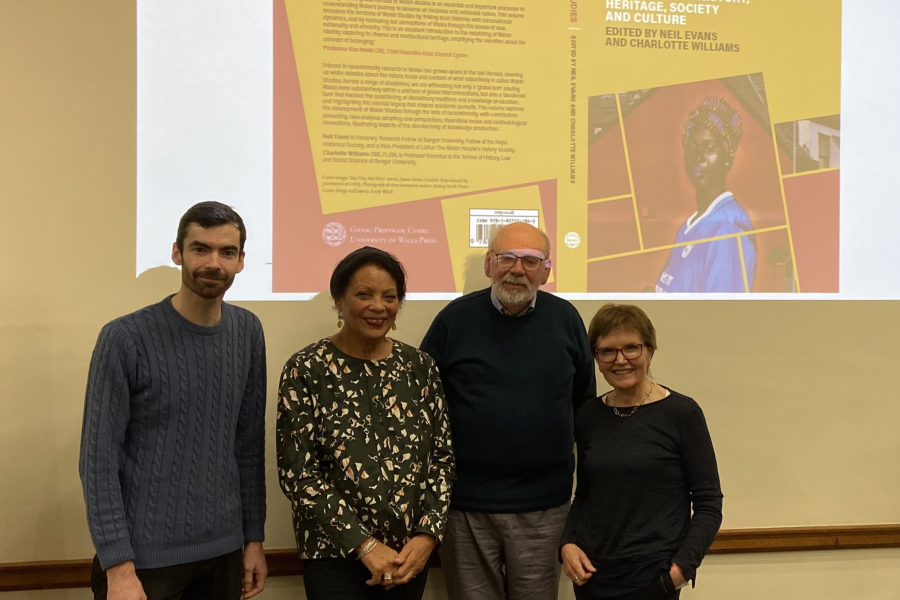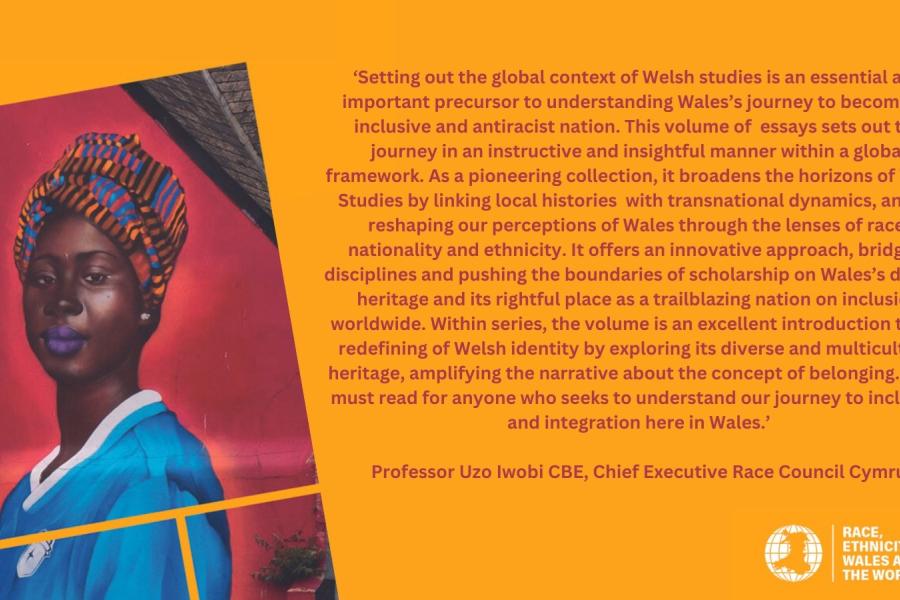
Under the able chairing of Dr Mari Wiliam, lecturer in Modern History and Welsh History, Professor Charlotte Williams presented the background and context of the book, Globalising Welsh Studies, and its importance in the contemporary climate. Dr Neil Evans added a word about the process of compiling the volume and the themes that manifested themselves when bringing the many articles together.
Following that, two short lectures were delivered by two of the book's contributors. Dr Gareth Evans-Jones, lecturer in Philosophy and Religion, gave a talk about his chapter which reinterprets the biography written about John Ystumllyn by Alltud Eifion. According to tradition, John Ystumllyn is the earliest known black man who spoke Welsh in north-west Wales. Dr Evans-Jones' chapter shows the various layers in Alltud Eifion's work which have not been discussed sufficiently thus far, especially in relation to language, racism and imperialism.
The session closed with an insightful lecture by Dr Marian Gwyn, Honorary Lecturer, who delivered a masterful paper which traced the interrelationship between archives and social and national memory, and the importance of ensuring adequate funding to maintain these important places. Dr Gwyn reflected on the events marking the two hundredth anniversary of the abolition of slavery in Britain and the different ways in which that was responded to, together with the significant role of the collections and exhibitions shown in promoting and developing a more inclusive and respectful society.
The book has already received praise from various experts, including Professor Uzo Iwobi CBE, Chief Executive of Race Council Cymru who said that Globalising Welsh Studies 'is a must read for anyone who seeks to understand our journey to inclusion and integration here in Wales.'

It was a very special event, and the volume is available in its entirety via open access.
It is also possible to buy a hard copy of the book from the University of Wales Press.

